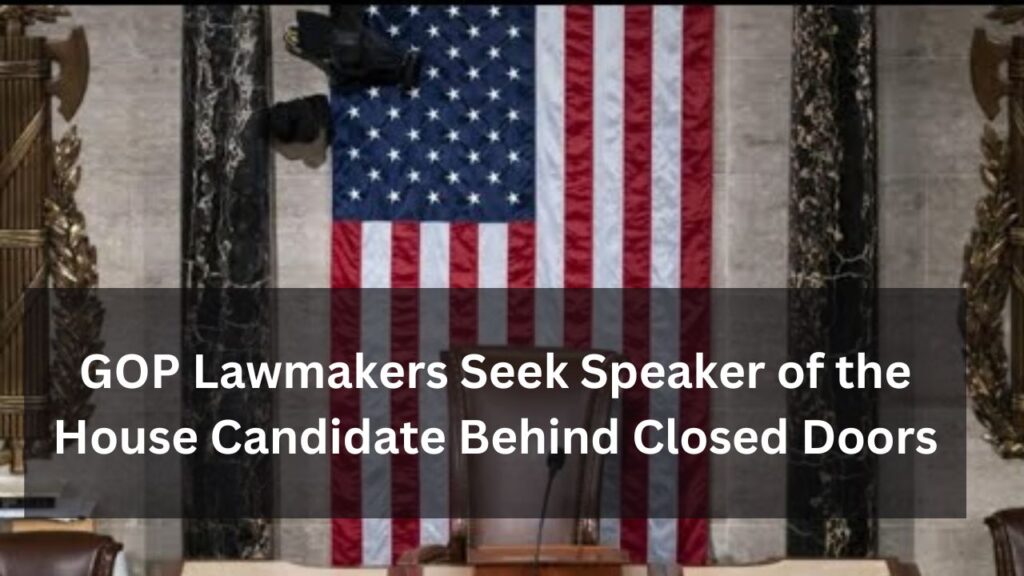
There is no clear frontrunner among the two declared candidates, Rep. Steve Scalise of Louisiana and Rep. Jim Jordan of Ohio, as Republican lawmakers meet behind closed doors to choose their candidate for Speaker of the House. According to a Punchbowl News report, Jordan wouldn’t pledge his support for Scalise if he were to win the speaker nomination, but Scalise claims that if the roles were reversed, he would vote for Jordan. This ambiguity might cause the voting process to take longer.
Punchbowl News’ senior Congressional reporter, Andrew Desiderio, offered his opinions to clarify the situation. He emphasised the GOP’s intention to prevent the humiliating scenario of repeated voting on the House floor, as occurred in January. They want to streamline the process by selecting a candidate privately and obtaining a majority before putting the question to the floor.
But there’s a chance that neither Scalise nor Jordan will garner enough support. The acting Speaker pro tempore, Congressman Patrick M. McHenry of North Carolina, might then take over as acting speaker. If the impasse continues, McHenry, who is respected on both sides of the political spectrum, might be the short-term consensus choice.
Hakeem Jeffries has been unanimously nominated by Democrats to be the next Speaker of the House, giving some conservative Republicans hope for a coalition government that currently seems unlikely. The situation might change, especially if urgent legislative action is required, like support for Israel, which is backed by both major political parties.
Regarding the ongoing assistance to Israel, the administration is within its rights to do so, but those rights have restrictions. The president is given the authority to distribute US weapons to allies, but this authority has a dollar value cap and must be renewed by Congress once it is reached. It becomes difficult to obtain this authorization without a Speaker.
What matters most is whether the GOP can choose a Speaker candidate and schedule a vote for as soon as tomorrow. The best-case scenario involves a speedy resolution; the worst-case scenario might involve a drawn-out and disjointed procedure. In the coming hours, it will become clear if a majority can be achieved and if Republicans can unite behind their preferred candidate. The situation warrants close observation because the outcome is still up in the air.
